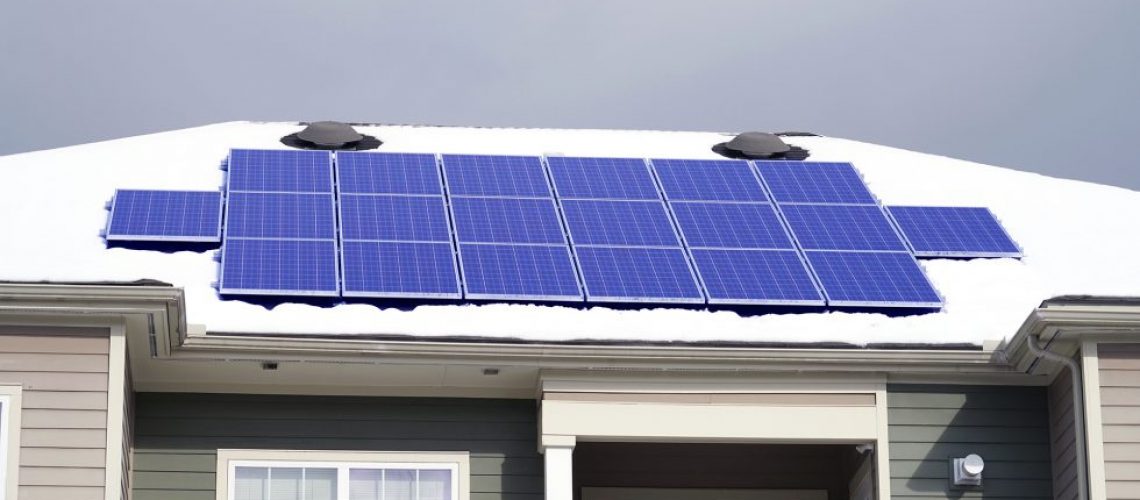During the winter months, the days have less sunshine, the temperature drops, and the snow starts to fall, all of which seem to be factors that could affect the efficiency of a solar installation.
Here are some answers to questions that we get frequently asked about the efficiency and maintenance of solar panel installations in winter.
Let’s get started…
Do Solar Panels Work In The Cold?
Solar panels work just as well in the cold as they do in the warm (all other factors being equal). Photovoltaic cells work by using light in visible wavelengths, so hot or cold, the main factor in terms of energy generation is the amount of light hitting the cells, not their temperature.
Fun Fact: Believe it or not, there’s significant evidence that suggests the cold weather makes solar panels slightly more efficient (again, with all other factors being equal).
Do Solar Panels Work When Covered In Snow?
As we mentioned above, visible light needs to hit the photovoltaic cells inside your solar panels in order for them to generate energy. Needless to say, if your panels are covered in snow, the amount of light they receive will be dramatically reduced, and as such, they will generate very little energy (or none at all).
Do I Need To Remove Snow From My Solar Panels?
The surface of a solar panel is very smooth, and panels are almost always installed at an angle. When sunlight hits the snow on your panels and it starts to melt slightly, the slippery surface of the panel and gravity work together to help the snow slide off without the need for intervention.
This effectively means that solar panels are self-clearing (in most cases).
It’s not recommended that you attempt to clear snow from the panels yourself as there’s a very real possibility that you cause permanent damage to the panels. Additionally, working on a roof that’s covered in snow and ice is hazardous (even for professionals), and there’s a very real risk of injury.
If you’re determined to give your panels a helping hand, then you can ensure that the area at the bottom of the panels (where the snow will slide off onto) is free from snow. This ensures that the snow doesn’t pile up at the bottom (which would otherwise prevent future snow from sliding off).
But again, this requires you to get up on the icy roof, and it’s not usually required (or recommended).
Will My Solar Panels Get Damaged Under The Weight Of Heavy Snowfall?
Despite the sleek, thin, streamlined look of solar panels – they’re actually very sturdy. Unless you live in an area that has particularly harsh winters then there’s very little chance that your panels get damaged by the weight of snow.
Different types of solar panels can withstand different amounts of weight before they get damaged, but panels that are rated up to roughly 5500 pascals (around 115 pounds per square inch) are not uncommon. It’s hard to say exactly how much snow they can withstand before becoming damaged, but needless to say, it’s a lot – several feet at least.
So Solar Panels Work Perfectly Fine In The Winter?
Yes, providing they’re not covered in snow.
Fun Fact: Snow on the roof can actually increase the efficiency of your installation (if it’s not on the panels). The whiteness of the snow reflects some light on to the photovoltaic cells that would otherwise be absorbed by your roof.
However, there’s a caveat to all of the information we’ve provided above…
You’re almost certainly going to generate less energy during the winter months (thanks to mother nature). The days are shorter, the weather is harsher, and there’s usually much more cloud cover.
While the difference in the amount of energy generated between the summer and winter months is noticeable, it’s much smaller than most people expect it to be.
(Which means that your solar installation remains a great investment regardless of the season, and it will be generating cleaner, greener energy for you all year round.)


